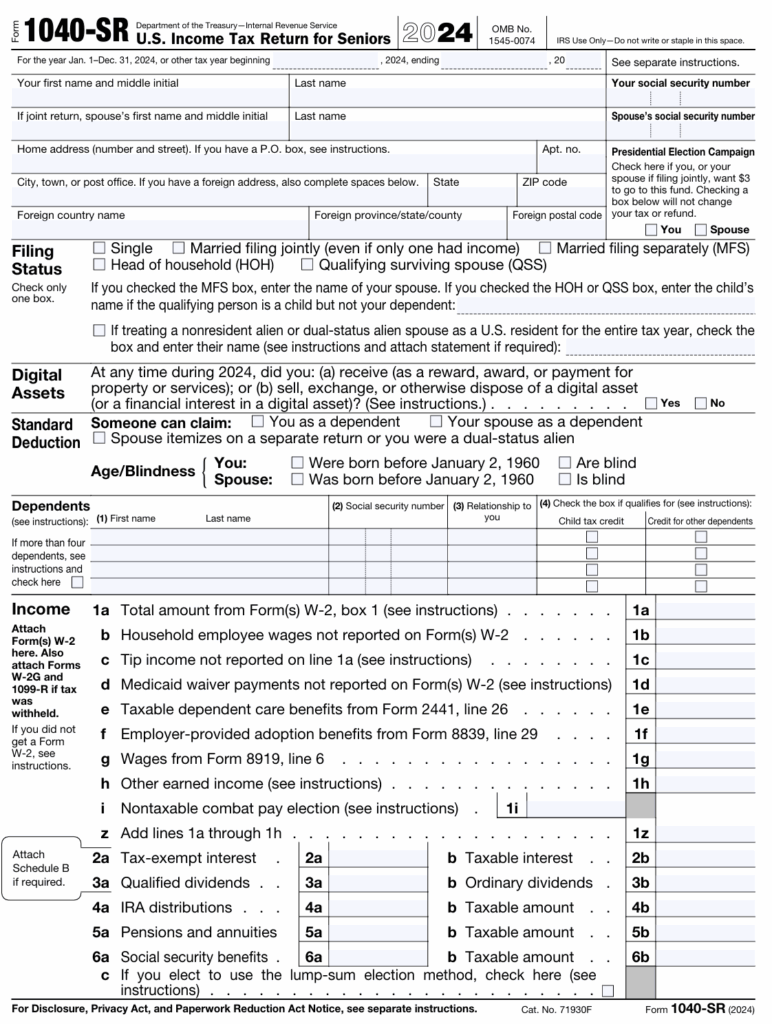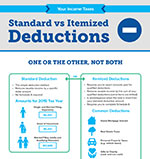How recent tax changes may affect the FEIE Standard Deduction
Everything about the Foreign Earned Revenue Exemption: Maximizing Your Standard Reduction Advantages
The Foreign Earned Earnings Exclusion (FEIE) offers a beneficial possibility for U.S. citizens living abroad to minimize their tax obligations. Recognizing the eligibility criteria is essential for those seeking to take advantage of this exemption. Claiming the common reduction can improve overall tax obligation benefits. However, handling this procedure includes cautious attention to detail and an awareness of common mistakes. Checking out these elements can supply quality and maximize potential tax obligation benefits.
Comprehending the Foreign Earned Earnings Exclusion (FEIE)
The International Earned Earnings Exclusion (FEIE) enables united state residents and resident aliens working abroad to exclude a part of their international earnings from federal earnings tax. This stipulation offers as a financial alleviation system, making it possible for expatriates to maintain a larger share of their income earned in foreign nations. By minimizing gross income, the FEIE helps relieve the concern of double tax, as individuals may also go through taxes in their host countries. The exemption applies only to earned revenue, which consists of earnings, salaries, and professional charges, while passive revenue and investment gains do not qualify. To profit from the FEIE, people should submit certain types with the internal revenue service, detailing their international earnings and residency - FEIE Standard Deduction. Understanding the nuances of the FEIE can substantially affect financial preparation for U.S. citizens living overseas, making it necessary for migrants to remain informed about this advantageous tax arrangement
Eligibility Criteria for the FEIE
To get the Foreign Earned Revenue Exemption (FEIE), people must meet specific qualification criteria. This consists of gratifying residency needs, passing the physical visibility test, and establishing a tax obligation home in an international nation. Each of these aspects plays a vital duty in determining whether one can profit from the exclusion.
Residency Needs
Fulfilling the residency requirements is important for individuals looking for to get approved for the Foreign Earned Earnings Exclusion (FEIE) To be eligible, taxpayers should develop an authentic home in an international nation or countries for a continuous period that normally extends an entire tax obligation year. This demand emphasizes the requirement of a deeper connection to the international location, moving past plain physical existence. Individuals must show their intent to reside in the international country and have actually established their living situation there. Variables such as the size of remain, kind of real estate, and local community participation are thought about in identifying residency. Satisfying these standards is important, as failure to do so might disqualify one from gaining from the FEIE.
Physical Existence Examination
Developing eligibility for the Foreign Earned Income Exemption (FEIE) can additionally be achieved via the Physical Presence Test, which requires individuals to be physically existing in an international nation for at the very least 330 complete days during a consecutive 12-month duration. This examination is useful for those who may not meet the residency demand however still live abroad. The 330 days have to be complete days, indicating that any type of day invested in the United States does not count towards this total amount. It is crucial for people to maintain exact documents of their traveling days and locations to support their insurance claims. Efficiently passing this examination can significantly lower taxed revenue and enhance financial outcomes for migrants.
Tax Obligation Home Location
Tax obligation home place plays a necessary role in establishing eligibility for the Foreign Earned Earnings Exemption (FEIE) To certify, a specific have to establish a tax home in an international country, which indicates their key workplace is outside the United States. This is distinct from a simple residence; the specific need to perform their work in the international country while maintaining a significant connection to it. The IRS needs that the taxpayer can show the intent to continue to be in the international area for a prolonged period. Furthermore, preserving a home in the united state can complicate qualification, as it might recommend that the person's real tax obligation home is still in the USA. Recognizing this standard is vital for optimizing FEIE benefits.
Just how to Declare the FEIE on Your Income Tax Return
Asserting the Foreign Earned Earnings Exemption (FEIE) on a tax return calls for cautious focus to detail and adherence to details internal revenue service standards. Taxpayers should first confirm eligibility by satisfying either the bona fide house test or the physical presence test. When qualification is confirmed, they must complete internal revenue service Form 2555, which information foreign gained revenue and pertinent info regarding their tax home.
It is important to report all foreign earnings precisely and preserve proper paperwork to support insurance claims. Taxpayers must likewise be aware of the maximum exemption restriction, which goes through yearly adjustments by the internal revenue service. Filing Type 2555 together with the yearly tax obligation return permits taxpayers to exclude a part of their foreign profits from U.S. taxation. Finally, it is advisable to seek advice from a tax obligation professional or IRS resources for updated information and assistance on the FEIE procedure, ensuring compliance and maximization of prospective advantages.
The Standard Deduction: What You Required to Know
Just how does the typical deduction influence taxpayers' overall economic situation? The common reduction serves as a substantial tax obligation advantage, minimizing gross income and potentially reducing tax obligations. For the tax year 2023, the typical deduction is evaluated $13,850 for solitary filers and $27,700 for couples filing collectively. This deduction streamlines the declaring procedure, as taxpayers can go with it as opposed to itemizing reductions, which requires in-depth record-keeping.

Taxpayers gaining foreign revenue may still assert the basic deduction, taking advantage of lowered taxed revenue even while utilizing the Foreign Earned Earnings Exclusion (FEIE) It is crucial to keep in mind that the typical reduction can not be combined with itemized reductions for the very same tax obligation year - FEIE Standard Deduction. Recognizing the common deduction enables taxpayers to make informed choices concerning their tax techniques, making best use of available benefits while ensuring compliance with Internal revenue service guidelines.
Approaches for Optimizing Your Reductions
Optimizing reductions under the Foreign Earned read this Revenue Exclusion needs a clear understanding of made revenue limitations and the benefits of asserting housing exclusions. Additionally, using Kind 2555 efficiently can improve the capacity for considerable he has a good point tax obligation financial savings. These techniques can significantly affect the overall tax obligation liability for expatriates.
Understand Earned Revenue Restrictions
While several expatriates seek to decrease their tax obligation worry, understanding the gained earnings limitations is important for properly leveraging the Foreign Earned Revenue Exclusion. The Irs (IRS) sets specific limits that dictate the optimum amount of foreign earned earnings eligible for exclusion. For the tax year 2023, this restriction is $120,000 per certified person. Exceeding this limit may cause taxation on the revenue above the restriction, diminishing the benefits of the exclusion. To make the most of deductions, expatriates need to keep precise documents of their international earned income and assess their qualification for the exclusion annually. Strategic intending around these restrictions can substantially improve tax cost savings, allowing expatriates to optimize their financial situation while living abroad.
Asserting Real Estate Exclusion Benefits
Several migrants neglect the potential benefits of declaring the Real estate Exclusion, which can significantly decrease their taxed income. This exemption permits individuals living abroad to subtract specific housing expenditures from their gross income, making it much easier to meet financial commitments without incurring considerable tax liabilities. To optimize this benefit, expatriates must verify they certify based on their residence and work situations. Furthermore, understanding eligible costs-- such as rent, utilities, and upkeep-- can improve the general reduction. Maintaining extensive documents of these expenses is important for substantiating claims. By tactically maneuvering via the Housing Exclusion, expatriates can notably decrease their tax problem and retain more of their revenues while living overseas, inevitably enhancing their monetary well-being.
Make Use Of Form 2555 Properly
Using Kind 2555 successfully can significantly improve the economic benefits available to expatriates, especially after taking benefit of the Real estate Exemption. This type allows people to assert the Foreign Earned Income Exclusion, which can greatly lower gross income. To optimize reductions, migrants need to validate they satisfy the certifications, including the physical presence test or the authentic home test. It is vital to precisely report all foreign made earnings and to maintain complete records of eligibility. Additionally, utilizing the Real estate Exclusion in tandem with Type 2555 can further decrease total tax obligation obligation. By understanding the complexities of these types, migrants can maximize their tax scenario and maintain more of their hard-earned revenue while living abroad.
Usual Risks to Avoid When Declaring Your Tax Obligations Abroad

Regularly Asked Inquiries
Can I Claim Both FEIE and the Foreign Tax Debt?
Yes, an individual can assert both the Foreign Earned Revenue Exemption (FEIE) and the Foreign Tax Credit Score (FTC) However, they should guarantee that the very same earnings is not used for both benefits to stay clear of dual benefits.
What Occurs if I Exceed the FEIE Income Restriction?
Surpassing the Foreign Earned Income Exclusion (FEIE) income restriction causes the ineligibility for the exclusion on the excess amount. This might bring about gross income in the USA, requiring proper tax filings.
Exist Any Type Of State Tax Obligation Effects for FEIE?
State tax effects for the Foreign Earned Income Exclusion (FEIE) vary by state. Some states might tax international earnings while others comply with federal exclusions, making it crucial for people to consult state-specific tax obligation regulations for clearness.

Just How Does FEIE Impact My Social Safety And Security Advantages?
The Foreign Earned Revenue Exemption (FEIE) does not directly influence Social Protection benefits. Nevertheless, earnings omitted under FEIE may influence the computation of typical indexed monthly profits, possibly affecting future advantages.
Can I Withdraw My FEIE Political Election After Asserting It?
Yes, a person can revoke their International Earned Earnings Exemption (FEIE) election after declaring it. This cancellation must be performed in creating and submitted to the IRS, adhering to details guidelines and due dates.
Comprehending the Foreign Earned Earnings Exclusion (FEIE)
The Foreign Earned Income Exclusion (FEIE) allows U.S. citizens and people aliens working abroad functioning exclude an omit of section foreign earnings international profits income government. Taxpayers gaining foreign revenue may still assert the standard reduction, benefiting from decreased taxable revenue also while using the Foreign Earned Income Exclusion (FEIE) Making best use of reductions under the Foreign Earned Revenue Exemption requires a clear understanding of made income limitations and the advantages of claiming real estate exemptions. While many migrants look for to lower their tax obligation worry, recognizing the earned income limits is crucial for successfully leveraging the Foreign Earned Earnings Exemption. Surpassing the Foreign Earned Revenue Exemption (FEIE) earnings limit results in the ineligibility for the exemption on the excess quantity.